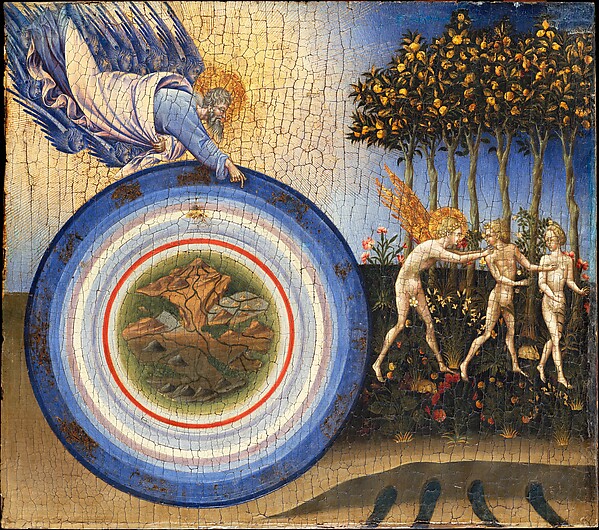
[... in this meditation I am using as my starting-point the Creation of Man, and the incident
which follows on it with such pitiable rapidity, the Fall of Man. I would just remind you of the
verse in which Adam’s creation is described: “The Lord God formed man out of the slime of the
earth, and breathed into his face the breath of life, and man became a living soul”. Let us look,
first of all, at that side of the picture which humiliates us, which puts us in our place. The Lord
God formed man out of the slime of the earth – I don’t think that means we are necessarily
bound to regard the human race, so far as its bodily composition is concerned, as a special
creation; after all, it does not appear to have been a creation ex nihilo. And certainly we are not
meant to draw any conclusions about the exact chemical composition of the flesh we wear. What
this verse does emphasize is the fact that man, on the one side of his nature, is a material being;
is akin, not merely to beasts and birds, but to the lifeless clay under his feet. We are matter, we
are potentiality; we change, as the years go past, every particle of the material tissue in our
bodies; and when we die, we rot in the ground.
So it does not worry us, when angry materialists tell us that we all came from a monkey;
“Monkey?” we say; “why, I was made out of the slime of the earth.” And, for fear we should be
in danger of forgetting our origin, the priest who celebrates the community Mass on Ash
Wednesday is directed to say to us on that occasion, Memento, homo, quia pulvis es, et in
pulverem reverteris. Pulvis es, we are slime of the earth, clay of God’s fashioning; we did not
make ourselves, he made us; his rights over us are absolute, to make, to break, to remake. Pulvis
es, we are not like the angels, who, though created beings, are yet creatures of unalloyed and
unconfined spirit; we have gross animal bodies, with gross animal needs. Et in pulverem
reverteris, the day will come when this body of ours, so delicately fashioned, so exquisitely
proportioned, will decay like dead leaves or fungus, and pass into the general stock-pot of inert matter. Et in pulverem reverteris, the proudest of our civilizations may be buried, years hence,
like Babylon or Carthage, beneath the drifting sand. No echo of vanity in our hearts but may be
silenced by that terrible formula, Pulvis es, et in pulverem reverteris.
from 'A Retreat For Priests', by Ronald Knox
READ the entire chapter in PDF.